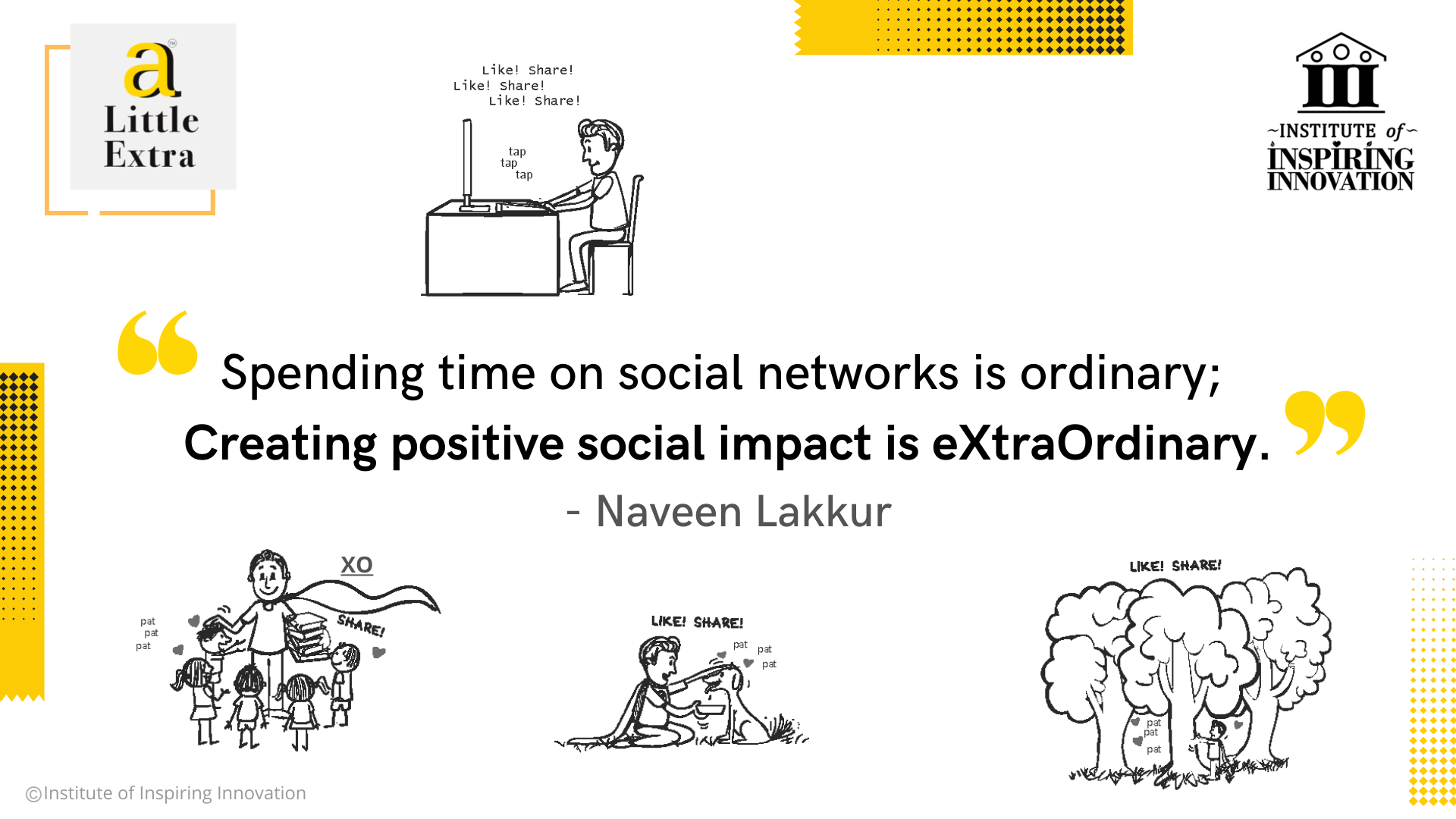Creating positive social impact is eXtraOrdinary

“Spending time on social networks is ordinary; Creating positive social impact is eXtraOrdinary.” – Naveen Lakkur
‘Prerna’ means ‘Inspiration’ – ‘a Little Extra’ story of Prerna Wadikar
Prerna Wadikar’s committed effort in studying engineering in Information Technology got her a responsible position as Distribution Manager at Schneider Electric, a leading company in the Digital Transformation of Energy Management and Automation. Her thirst for new knowledge grew and she did a course in Public Policies & Management from IIM Bangalore and then she developed a rich multi sectoral work experience with some of the most influential global thought leaders at reputed businesses, government and civil society organizations, spanning over a decade.
Prerna is a result oriented professional, she successfully led organisations to scale through strategic initiatives and partnerships working in 25 states in India and 6 countries.
Her desire to create a larger social impact inspired her to earn a seat to do Masters in Business Administration at Oxford University.
While studying at Oxford University, the invasion of Covid19 caught everyone by surprise and the lockdown was declared as a preventive measure.
Most people landed up spending time on social networks to either kill time or stay connected digitally if not physically.
During the first lockdown, Employees of the knowledge economy have conveniently reset their work environment from the office to their houses and even exotic locations like beach resorts. However, this luxury cannot be extended to the labour markets whose survival depends on daily wages through physical work and have no alternate means of livelihood. Pushcart vendors were affected severely.
It’s estimated ~10 million street vendors in India who belong to economically weak sections of society. Energy poverty perpetuates their economic hardship. Due to the temporary nature of their ‘shops’ – there is no electrical supply from the grid, they either shut shop after dark or rely on streetlights or low lumen lead-acid powered lights or costly fossil fuel lamps. They don’t have access to low-cost options to upgrade to cleaner, better solutions.
This problem inspired Prerna Wadikar to be a Little Extra and support pushcart vendors when the world steps into the new normal. She embarked on an innovation journey for making portable energy more accessible & affordable by developing a model using a lithium-ion battery.
She connected with an electronic system design and manufacturing company based out of Bengaluru to explore the feasibility of addressing the energy needs of micro & nano entrepreneurs for developing a fast charging solar battery product at lower cost of ownership. She could also inspire a leader in green infrastructure development in India to support her in this innovation journey. He helped convert the specifications into a prototype for pilot deployments of a solar chargeable lithium-ion portable battery for pushcart vendors.
This 400 gram weighing product looks very similar to a power bank. It can be charged through a normal electrical socket at home in less than one hour using their supercharger. Or even better, it can also be charged through a solar panel. The portable device can simultaneously power 3 electrical devices, for e.g a fan, a led light and even a small advertising board, uninterrupted for 4-6 hours.
She wanted to see if the product can do a little extra. They designed a battery backup multiplier casing, using which, they can increase the battery capacity by 10 times, that can help power a mini refrigerator too. They can use end of life electric vehicle battery cells to reduce the cost of this device.
She is confident that when manufactured at scale, this will be one of the most economical solar chargeable products in its category internationally.
This product innovation which is user friendly has multiple use cases for global markets. A big need in South Asia and Africa regions.
While most people spent time on social networks to get noticed, her efforts during the lockdown and a decade-long demonstration of social development through her personal and professional life, got noticed. She won the Vice-Chancellor’s Social Impact Award for the renewable energy product in recognition of her contribution to society while at Oxford.
She founded ‘Jeeva Global’ a company in response to support micro and nano entrepreneurs to create a positive social impact.

Leave a comment